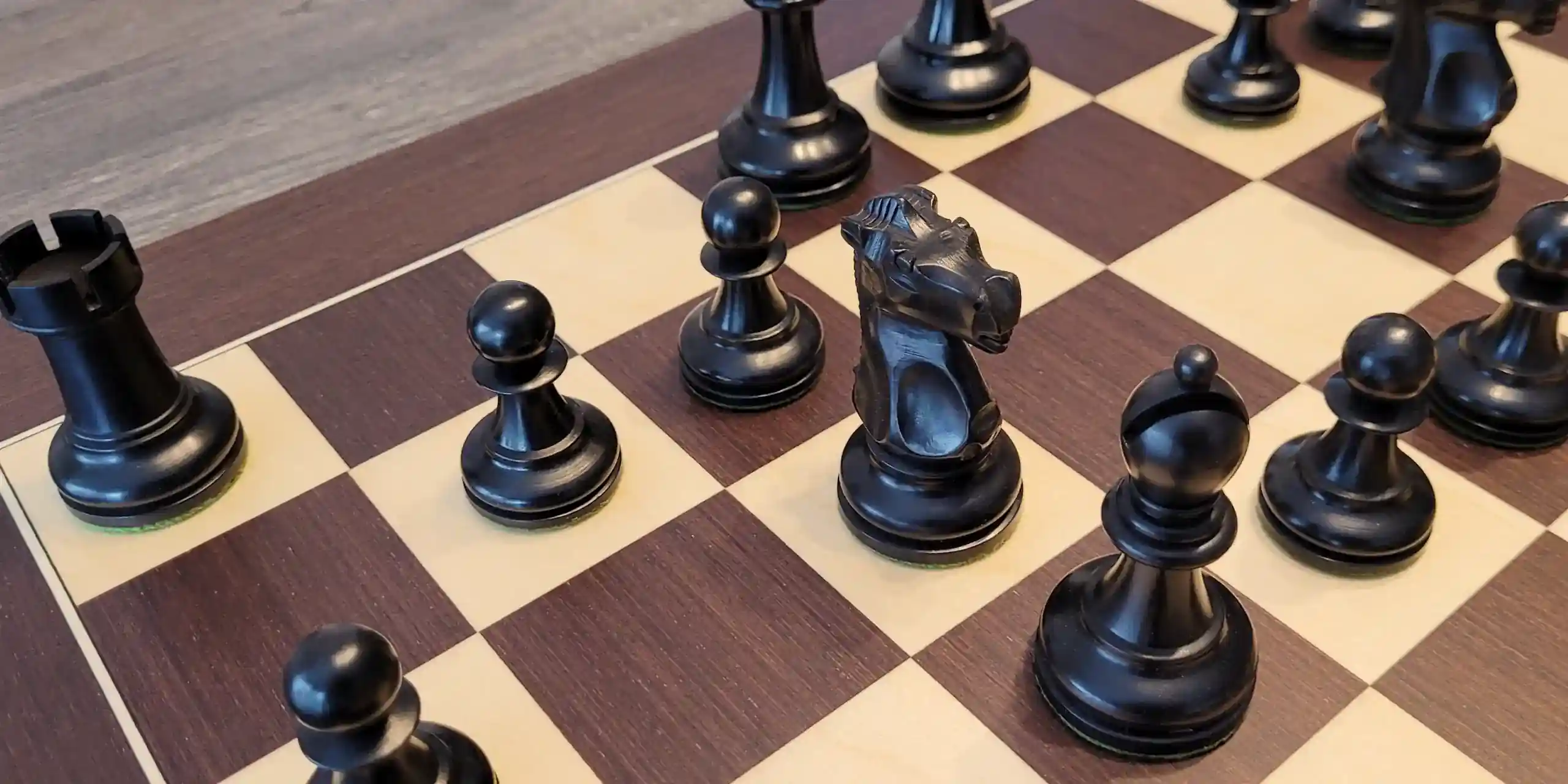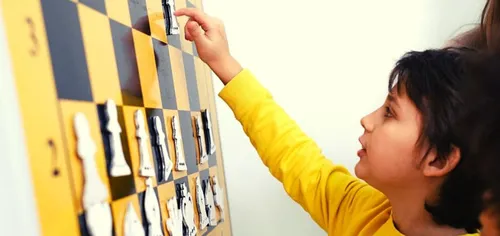
Learning chess is much more than just moving pieces on a board.
Do you think chess is reserved for an elite of grandmasters or born strategists? Think again! Learning chess is an adventure accessible to everyone, and its benefits go far beyond the game itself. It is a journey that transforms the way you think.
Whether you are a complete beginner or looking for a new activity to stimulate your mind, here are 5 surprising and detailed benefits that will convince you to get started.
What will you discover in this article?
- How chess forges unwavering concentration.
- Why every game is a problem-solving exercise.
- The unexpected link between chess and creativity.
- How this ancient game refines your decision-making.
- Why chess is a powerful tool for personal development.
1. Unbreakable Concentration
In a world where notifications and distractions are omnipresent, the ability to concentrate has become a rare and valuable skill. Chess is a powerful remedy for dispersion.
Each game is an intense exercise in concentration. You must not only think about your own moves, but also anticipate your opponent's plans, calculate variations, and remain vigilant at all times. A second of inattention can cost you the game. This mental gymnastics, practiced regularly, strengthens your attention "muscle". You will learn to immerse yourself deeply in a task, a skill directly transferable to your studies, your work, and even your personal relationships.

Every move requires a careful analysis of the position.
2. The Art of Problem-Solving
Every chess game is a series of problems to be solved. "How can I attack this piece without weakening my position?", "How do I defend my king from this threat?", "What is the best long-term plan?".
Playing chess gets you used to:
- Analyzing the situation: Assessing the strengths and weaknesses of each side.
- Identifying problems: Spotting immediate threats and strategic challenges.
- Generating solutions: Listing possible candidate moves.
- Evaluating options: Calculating the consequences of each move.
- Making a decision: Choosing the move that seems most promising.
This structured process becomes second nature and a real asset for tackling daily challenges with more serenity and efficiency, whether it's solving a computer bug or deciding on the best strategy for a project.
3. Unleashed Creativity
Contrary to the austere image sometimes associated with it, chess is a formidable field for expressing your creativity. Logic and creativity are not opposed; they dance together on the chessboard.
Imagining bold attacking plans, finding surprising piece sacrifices that turn the situation around, or setting subtle traps are all ways to let your imagination run wild. Chess shows you that there are often several solutions to a problem, and that the most elegant or unexpected is sometimes the most effective. It is the art of seeing beyond the obvious.

Sometimes, the most creative move is the one the opponent least expects.
4. Better Decision-Making
In chess, every move counts and has irreversible consequences. You cannot go back. This reality quickly teaches you to weigh the pros and cons of each decision, to anticipate potential outcomes, and to take full responsibility for your choices.
This discipline helps you develop a more confident judgment and make more thoughtful decisions, even under pressure. You learn to manage risk, to compromise, and to adapt when the situation changes. It is an accelerated training in strategic decision-making.
5. A Tool for Personal Development
Beyond cognitive skills, chess is a true school of life. It forges character in a profound way.
- Patience: You learn that plans take time to develop and that haste is often a bad advisor.
- Perseverance: You will lose many games. Analyzing your own mistakes to understand and improve is a lesson in humility and resilience.
- Respect: Respect for the opponent, fair play, and the ability to win with grace and lose with dignity are at the heart of the game.
- Emotional Management: Staying calm under pressure, controlling your frustration after a mistake, and managing the excitement of a winning position are crucial emotional skills.
Conclusion: Ready to make your first move?
Getting into chess is much more than learning a new game. It is offering yourself a gym for your brain and a school for your character. The benefits you will derive from it will infuse into all areas of your life.
So, don't wait any longer. Open a chessboard, online or real, and discover for yourself everything that this ancient game has to offer!